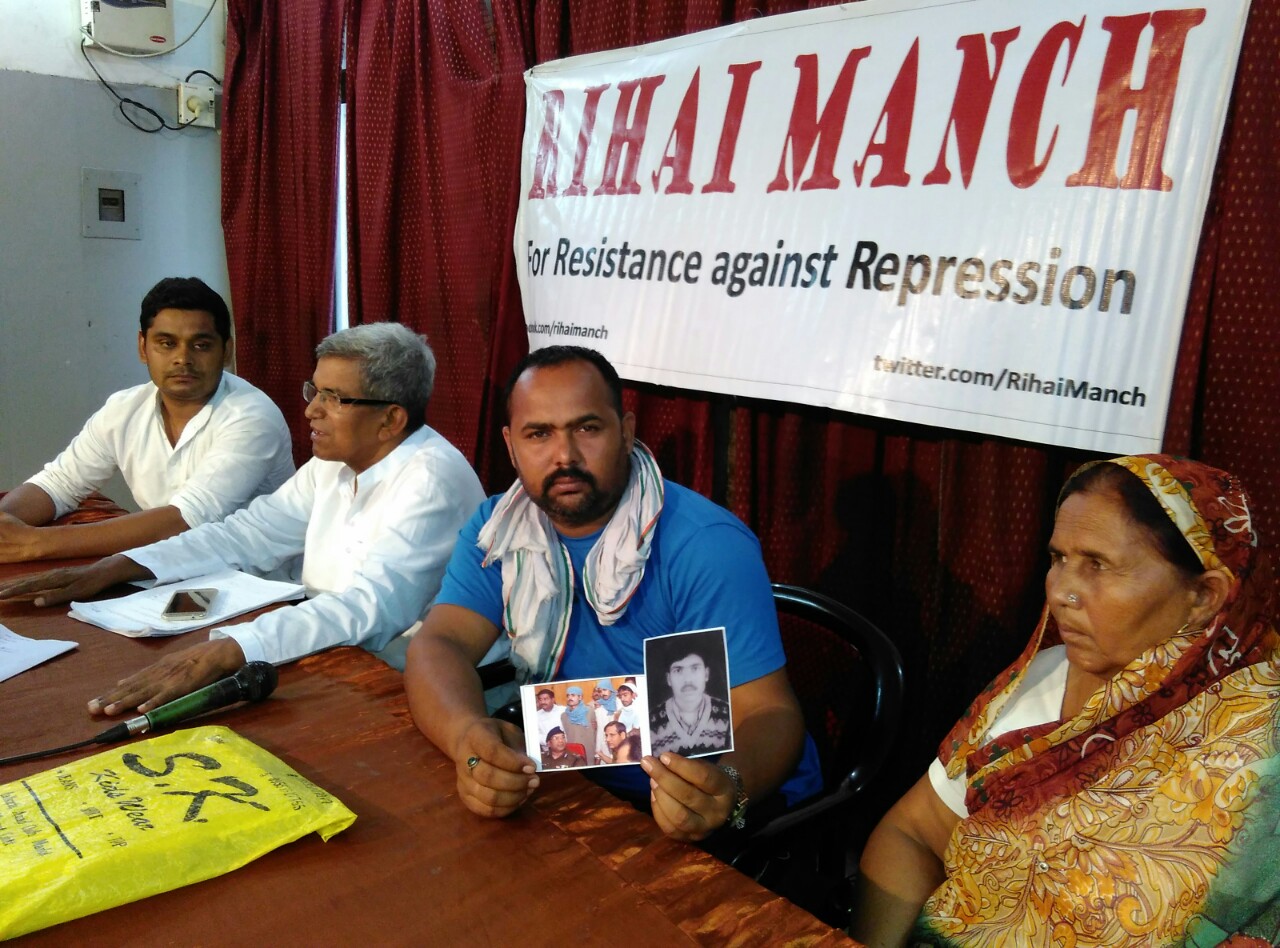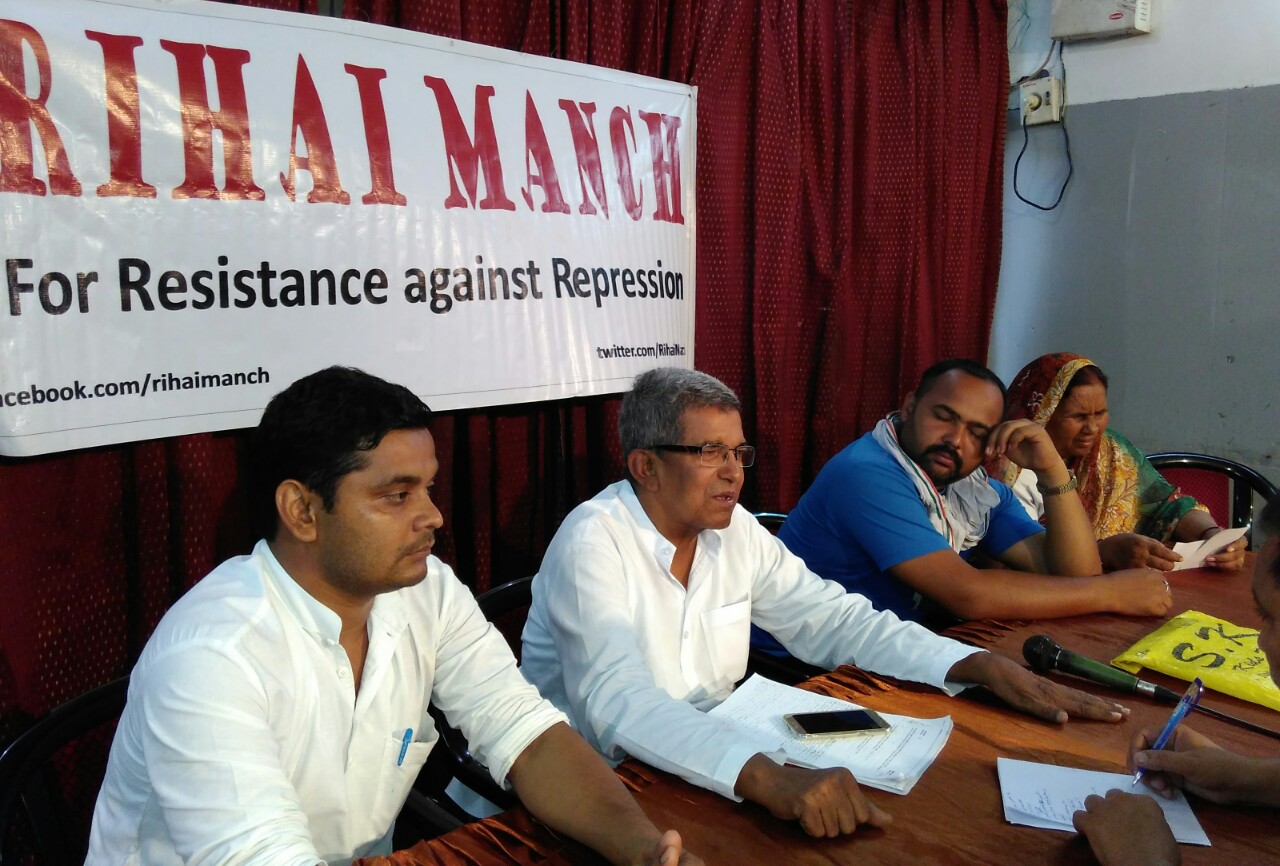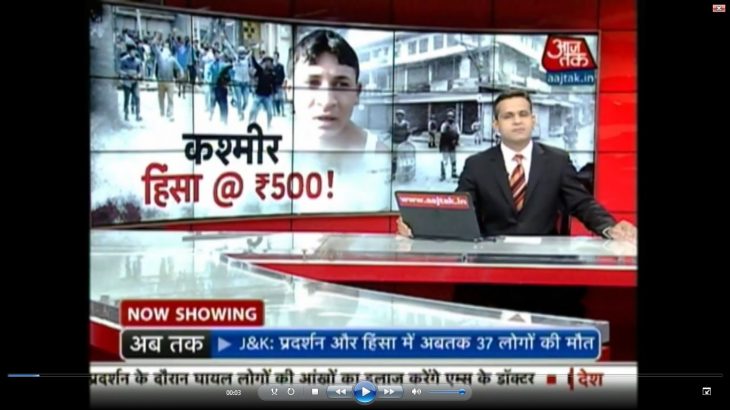
कश्मीर जल रहा है। श्रीनगर की गलियों में लगता है जैसे कोई युद्ध छिड़ा है। अब तक करीब 40 लोग मारे जा चुके हैं। करीब 2000 नागरिक और 1500 के करीब सुरक्षा बलों के जवान घायल हैं। ऐसे माहौल में पत्रकारों के लिए तस्वीर के सभी पहलू सामने ला पाना वाक़ई एक चुनौती है। साहस, समझ और संवेदनशीलता के साथ सच्चाई को सामने रखना आसान नहीं होता, लेकिन इरादा अगर सिर्फ शोहरत और टीआरपी बटोरने का हो तो झूठ को पंख लगाकर उड़ने से भला कौन रोक सकता है!
अफ़सोस, कि सबसे तेज चैनल 'आज तक' ने यही किया। 14 जुलाई की शाम से देर रात तक 'आज तक' और टीवी टुडे ग्रुप के अंग्रेजी चैनल 'इंडिया टुडे' के पर्दे पर एक ‘एक्सक्लूसिव’ ख़बर धमाके से चलाई गई। दावा किया गया कि कश्मीर में पत्थरबाज़ी करने वाले 'कुछ लड़कों' को हुर्रियत नेता सैय्यद अली शाह गिलानी की ओर से 500 रुपये दिये जाते हैं। सबूत बतौर एक डरे-सहमे नाबालिग़ को पेश किया गया जो कह रहा था, ‘मैं जीना नहीं चाहता। मुझे गोली मार दो…।’
ज़ाहिर है लड़का बुरी तरह डरा नज़र आ रहा था। उस लड़के के पीछे सीआरपीएफ़ के कुछ जवान भी नज़र आ रहे थे जो बीच-बीच में उसकी पीठ ठोंक देते थे… लड़का कैमरे के सामने था और कैमरे के पीछे से नामालूम लोगों के सवाल गूँज रहे थे। इनमें एक स्त्री का स्वर भी था। 'इंडिया टुडे' की ख़बर में तो स्क्रीन पर लड़के की आँखों को छिपाती एक छोटी सी काली पट्टी लगा दी गई थी, लेकिन 'आज तक' की ख़बर में आंख की शर्म भी नदारद थी। इस लड़के ने कबूल किया कि उसका नौजवान लड़कों का एक गिरोह है जिसे गिलानी की ओर से सुरक्षाबलों पर पत्थरबाज़ी के लिए पैसे मिलते हैं।
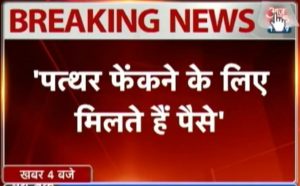
यह रिपोर्ट चैनल के एंकर और संवाददाता गौरव सावंत ने भेजी थी। गौरव सेना को कवर करते रहे हैं और सामरिक मामलों के विशेषज्ञ बताये जाते हैं। चैनल के तमाम दिग्गज एंकरों ने इस ख़बर को विस्फ़ोटक बताते हुए चौपाल लगाई और और कश्मीरियों का पक्ष रखने की कोशिश करने वालों के ऊपर, चर्चा में शामिल राष्ट्रवादी प्रतिनिधियों के साथ टूट पड़े।
वाक़ई गौरव ने कमाल किया। जो काम श्रीनगर में तैनात तमाम रिपोर्टर नहीं कर पाये, वह गौरव ने कर दिया। तालियाँ… पिछले हफ़्ते ही ‘आज तक’ फिर से नंबर एक हुआ है… संपादक ख़ुश होंगे कि टीआरपी यक़ीनन मिलेगी। इसीलिए ख़बर को लगातार ताने रहा गया।
लेकिन ठहरिये!!! इस ख़बर में बहुत पेच है। इस पर यक़ीन करने के पहले कुछ सवालों से गुज़रना ज़रूरी है:
1. आख़िर वह नाबालिग़ कौन है? क्या नाम है उसका? यूँ तो नियम है कि नाबालिगों की पहचान छिपाई जाए। इस ख़बर में भी आगे कश्मीरी लड़कों की बाइट है जिनके चेहरे ढंके हैं। तो फिर इस लड़के का चेहरा क्यों नहीं ढंका गया? और जब ‘आज तक’ ने चेहरा दिखा ही दिया, तो फिर नाम बताने में क्या हर्ज़ है?
2. इतने बड़े खुलासे के बाद उस लड़के के खिलाफ़ मामला दर्ज हुआ होगा! यही नहीं, सैयद अली शाह गिलानी के ख़िलाफ़ भी मुक़दमा दर्ज हुआ होगा! लेकिन यह बात ख़बर से ग़ायब क्यों है?
3. लड़के की बाइट अगर गौरव सावंत ने ली तो फिर चैनल के लोगो वाला माइक क्यों नज़र नहीं आ रहा है? आमतौर पर रिपोर्टर अपनी एक्सक्लूसिव बाइट के साथ अपने चैनल का माइक जरूर दिखाते हैं ताकि कोई दूसरा चोरी न कर सके। स्क्रीन पर चैनल का लोगो लगा माइक लगातार दिखे, यह ब्रांडिंग का उसूल है।
4. लड़के के पीछे जो सीआरपीएफ़ के जवान नज़र आ रहे हैं, उनकी वर्दी ख़ाकी क्यों है जबकि अब आमतौर पर सेना की तरह सीआरपीएफ़ के जवान भी पत्तों-बूटों वाली छापेदार (disruptive pattern) जैतूनी रंग की हरी वर्दी पहनते हैं?
5. सीआरपीएफ़ जवान बीते दो सालों में ऐसे हेलमेट पहनते हैं जिन पर चेहरे के आगे जाली लगी होती है, जबकि 'आज तक' की ख़बर में नज़र आ रहे जवान पहले की तरह सादा हेलमेट लगाये हुए हैं। आख़िर ऐसे जवान गौरव सावंत को कहाँ मिले?
6. लड़के से सवाल पूछने वाले ढेर सारे लोग कौन हैं? अगर वे पत्रकार थे तो फिर उन्होंने ख़बर क्यों नहीं चलाई? महिला की आवाज़ में भी सवाल है, लेकिन फ़िलहाल श्रीनगर में कोई महिला पत्रकार फ़ील्ड रिपोर्टिंग करते तो नज़र नहीं आ रही है। क्या गौरव बताएँगे कि कौन है वह?
इन सवालों का जवाब क्या हो सकता है, इसका अंदाज़ा इन तथ्यों से लगाया जा सकता है:
1. मीडियाविजिल के सूत्र बताते हैं कि बुरहान वानी की मौत के बाद अब तक किसी भी पत्थरबाज़ को घाटी में गिरफ़्तार नहीं किया गया है। पुलिस और सुरक्षाबलों के हर पीआरओ ने ऐसी किसी गिरफ्तारी या हिरासत में लेने की कार्रवाई से इंकार किया है।
2. शुक्रवार को बुरहान वानी की मौत के बाद से ही गिलानी समेत तमाम हुर्रियत नेताओं को उनके घरों में नज़रबंद कर दिया गया। ऐसे में सुरक्षा घेरे को तोड़कर पत्थरबाज़ों को पैसे देने की व्यवस्था कैसे हो पाई होगी?
3. ‘आज तक’ जिसे इतनी बड़ी ख़बर बता रहा है, उस पर कार्रवाई भी होनी चाहिए थी। लेकिन इस बाबत गिलानी पर ऐसा कोई मुक़दमा अब तक दर्ज नहीं हुआ है। क्यों?
साफ़ है कि यह बाइट नई नहीं है। इसे किसी ने गौरव सावंत को मुहैया कराया है। यानी जब सरकार गिलानी समेत तमाम अलगाववादियों नेताओं से शांति बहाली में मदद माँग रही है तो यह ख़बर ‘प्लांट’ कराई गई है। ज़ाहिर है, ऐसा करने वाले शांति नहीं चाहते हैं… वे कौन हैं और उनका मक़सद क्या है, इसका अंदाज़ा आसानी से लगाया जा सकता है।
मीडियाविजिल के विश्वस्त सूत्रों के मुताबिक यह बाइट 2010 की हो सकती है जब घाटी में तीन नागरिकों की सैन्य कार्रवाई में मौत के बाद माहौल बिगड़ गया था। तीन महीने तक हालात बेकाबू बने रहे थे। तमाम नौजवान पत्थरबाज़ी करते हुए सैनिकों पर हमला कर रहे थे। जिस तरह की वर्दी और बिना जाली के हेलमेट पहने जवान गुनाह कबूल करते लड़के के पीछे दिख रहे हैं, वह भी इस बात की तस्दीक करता है कि यह बाइट कई साल पुरानी है। बहरहाल, नई तो नहीं है, यह दावे से कहा जा सकता है।
वैसे गौरव सावंत के लिए ऐसा करना कोई नई बात नहीं है। पिछले दिनों जब जेएनयू प्रकरण गर्म हो रहा था तो अचानक गौरव ने ट्वीट किया था कि हाफिज़ सईद ने जेएनयू के छात्रों का समर्थन करने वाला ट्वीट किया है। तबकारवाँ पत्रिका के राजनीतिक संपादक हरतोश सिंह बल ने पूछा था कि उसे वह ट्वीट हासिल कहाँ से हुआ(बाद में पता चला कि हाफिज़ ने ऐसा कोई ट्वीट नहीं किया था।) मीडियाविजिल ने इस पर एक स्टोरी प्रकाशित की थी जिसे आप यहाँ पढ़ सकते हैं।
वैसे, जब तमाम लोगों की जान जा रही हो, तब यह साबित करने का क्या मतलब कि कश्मीर के नौजवान पैसे की लालच में पत्थर फेंकते हैं। यानी हुर्रियत या पाकिस्तान से मिलने वाले पैसे के वे इतने लालची हैं कि जान की परवाह भी नहीं करते। मीडियाविजिल ने जब इस मामले में पड़ताल करते हुए कश्मीर के कुछ पत्रकारों से बात की, तो उन्होने सवाल किया कि क्या 'आज तक' को यह भी लगता है कि बुरहान वानी के जनाज़े में जो लाखों लोग उमड़े, वे भी पैसे लेकर गये थे।
ज़रूरी नोट: 'इंडिया टुडे' टीवी और 'आज तक' ने इस बाइट की सत्यता और विशिष्टता का दावा किया है। मीडियाविजिल इस पर केवल परिस्थितिजन्य साक्ष्यों और अपने सूत्रों के आधार पर सवाल उठा रहा है, इसके फर्जी होने का कोई दावा नहीं कर रहा। इस पर अंतिम फैसला टीवी के सुधी दर्शक ही ले सकेंगे। इसलिए मीडियाविजिल के पाठक और पत्रकारिता से सरोकार रखने वाले व्यक्ति यदि पत्थरबाज़ लड़के की दिखाई गई इस बाइट पर उठाए हमारे छह सवालों से सहमत हों और उन्हें ऐसा लगता हो कि दर्शकों द्वारा सही सूचना प्राप्त करने के उनके अधिकार के साथ कुछ खिलवाड़ हो रहा है, तो वे अपनी शिकायत न्यूज़़ ब्रॉडकास्ट स्टैंडर्ड अथॉरिटी (एनबीएसए) और ब्रॉडकास्ट एडिटर्स एसोसिएशन (बीईए) को भेजकर बाइट की फोरेंसिक जांच की मांग कर सकते हैं ताकि जनहित में यह पता लग सके कि टीवी टुडे ग्रुप जिसे सत्य और एक्सक्लूसिव बता रहा है, वह वाकई ऐसा है या नहीं।
Courtesy: mediavigil.com

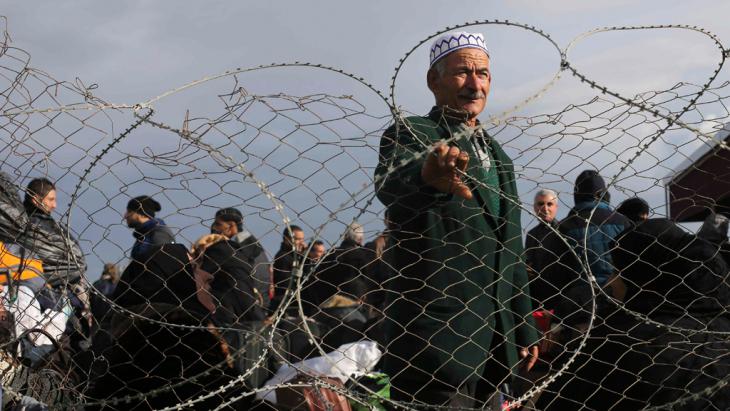




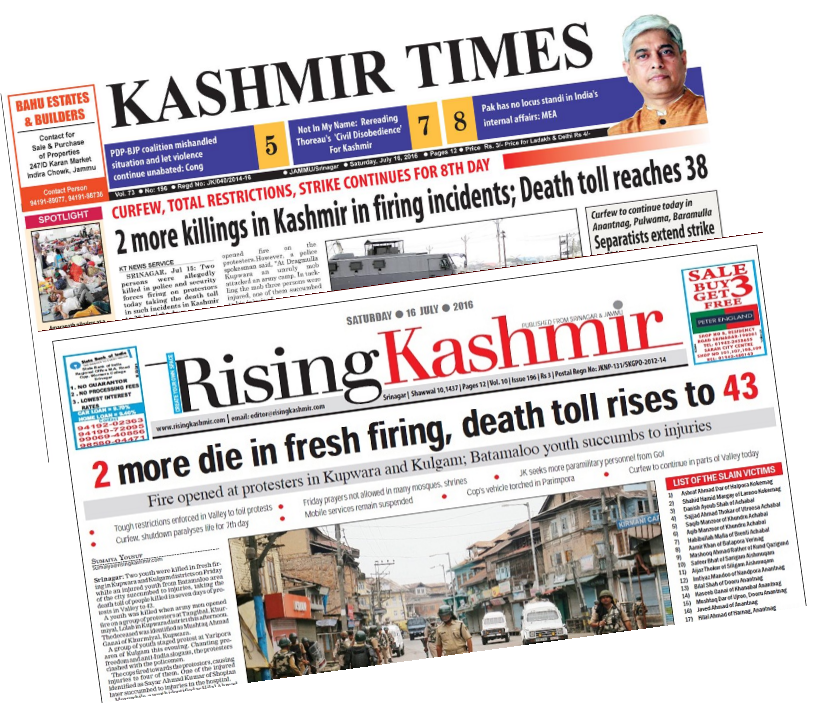










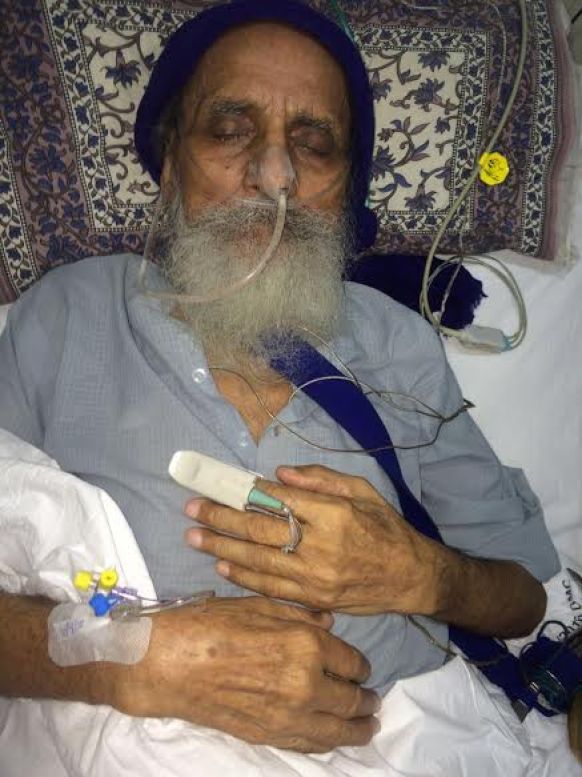
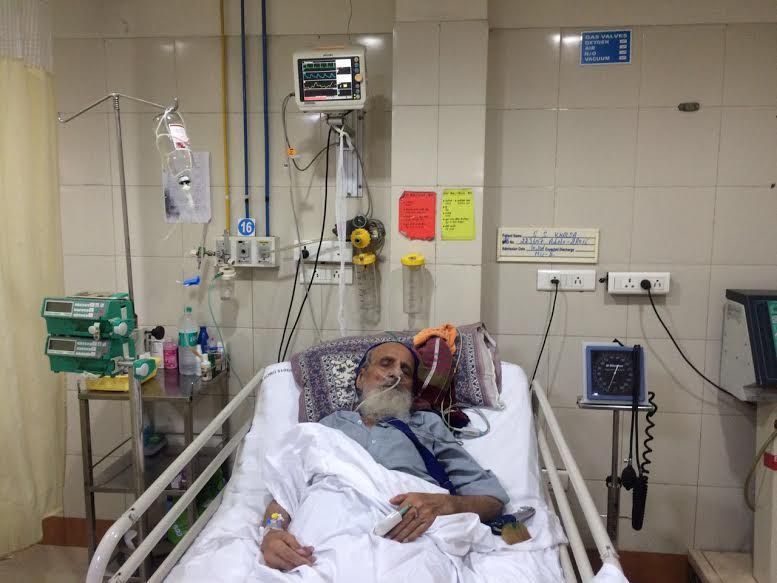
.jpeg)
